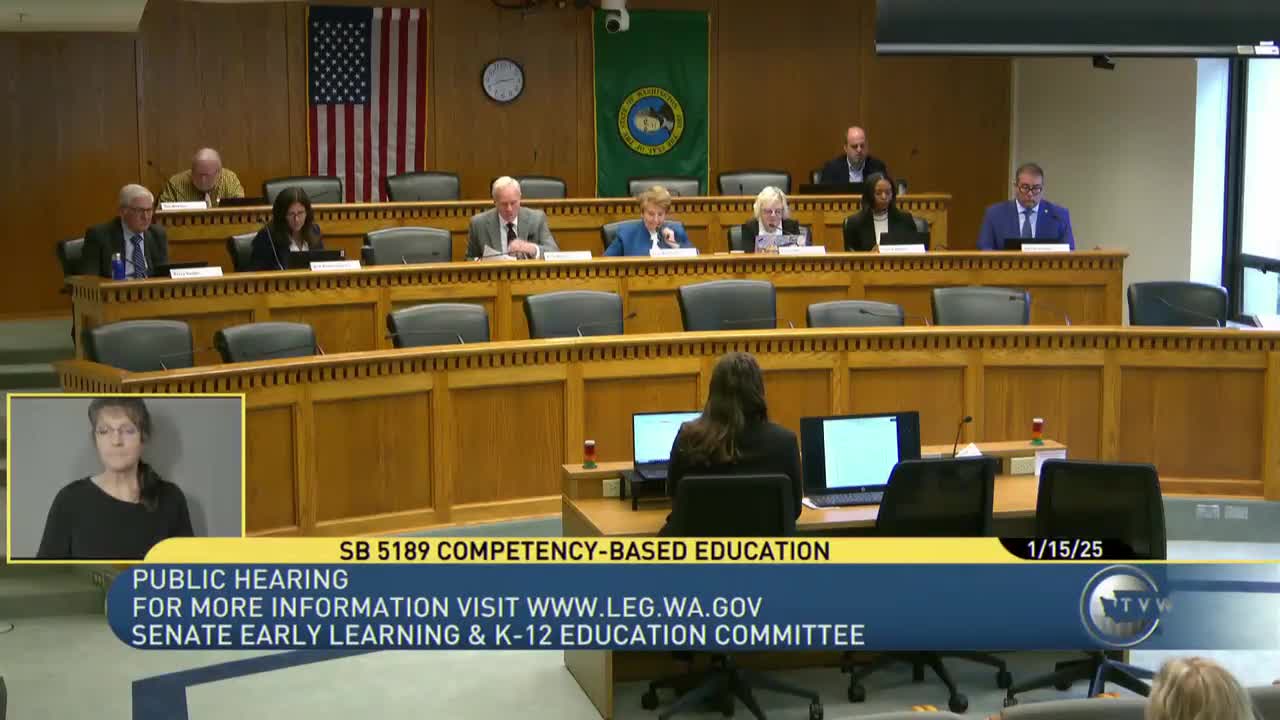Committee hears bill to clarify and support competency‑based education, transcripts and funding rules

Summary
Senate Bill 5189 would define competency‑based education (CBE) in statute, direct OSPI and the State Board of Education to develop competencies and a CBE high‑school transcript format, and authorize OSPI rules to recognize full‑time enrollment funding for CBE programs; proponents and opponents debated equity, standards and parental engagement.
Senate Bill 5189, presented to the Early Learning & K–12 Education Committee, would clarify that the term "competency‑based education" (CBE) is interchangeable with mastery‑based learning and specify seven elements of CBE, including that student progress is based on evidence of mastery rather than seat time. The bill directs OSPI to adopt rules to authorize full‑time enrollment funding for CBE programs, asks OSPI and the State Board of Education to recommend a process for aligning competencies with state learning standards, directs the State Board to design a process to identify CBE schools/districts, requires the Washington Interscholastic Activities Association to consider barriers to student participation, and asks the State Board to work with stakeholders to develop a competency‑based high‑school transcript format for OSPI adoption.
Supporters—including the State Board of Education, the State Board for Community and Technical Colleges and several district principals—said CBE enables students to demonstrate skills in varied ways, increases engagement and can raise graduation rates when implemented with supports. Jaylee Schultz from the State Board said the bill updates the state's definition to reflect national practice and adds an equity focus. District principals and demonstration site leaders said funded cohorts and collaborative support have helped their schools expand CBE offerings and improve graduation and engagement metrics.
Opponents raised concerns about measurement and standards. Witnesses opposed to the bill argued CBE focuses attention on "competency" language that they said risks lowering a focus on core academic knowledge, and said some schools have not adequately communicated CBE plans to families. Committee members and OSPI asked implementation questions about timelines, rulemaking, funding streams and how CBE programs would interact with existing funding classifications (for example, alternative learning experience funding versus basic education funding). OSPI and supporters noted the bill is permissive rather than mandatory and emphasized the bill's intent to support demonstration sites and create a pathway for districts that choose to pursue CBE.
No formal action was taken during the hearing.

